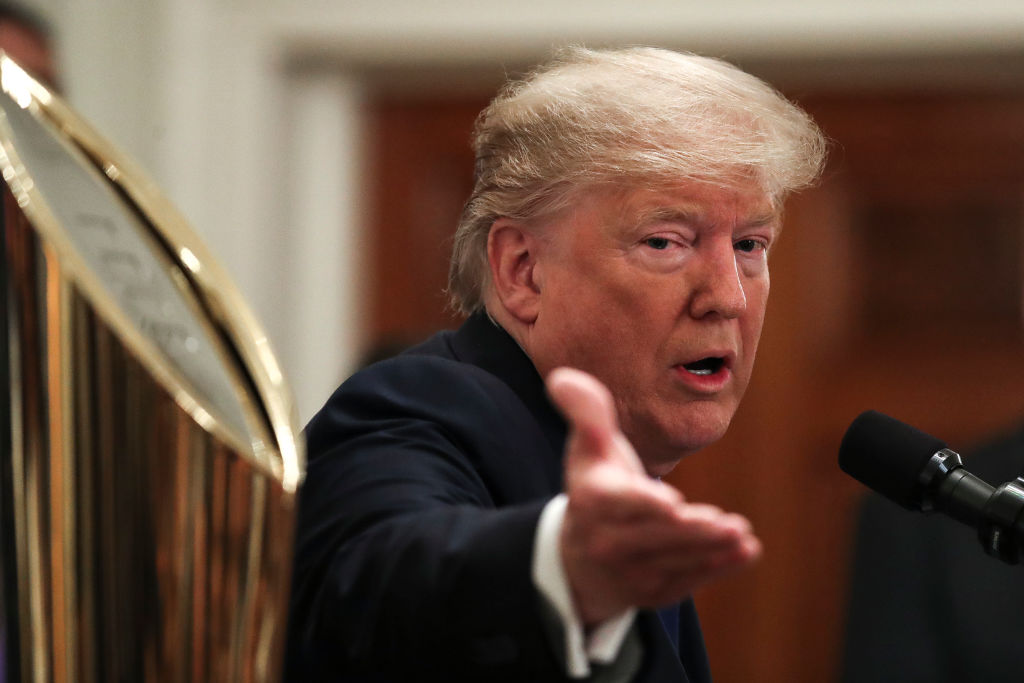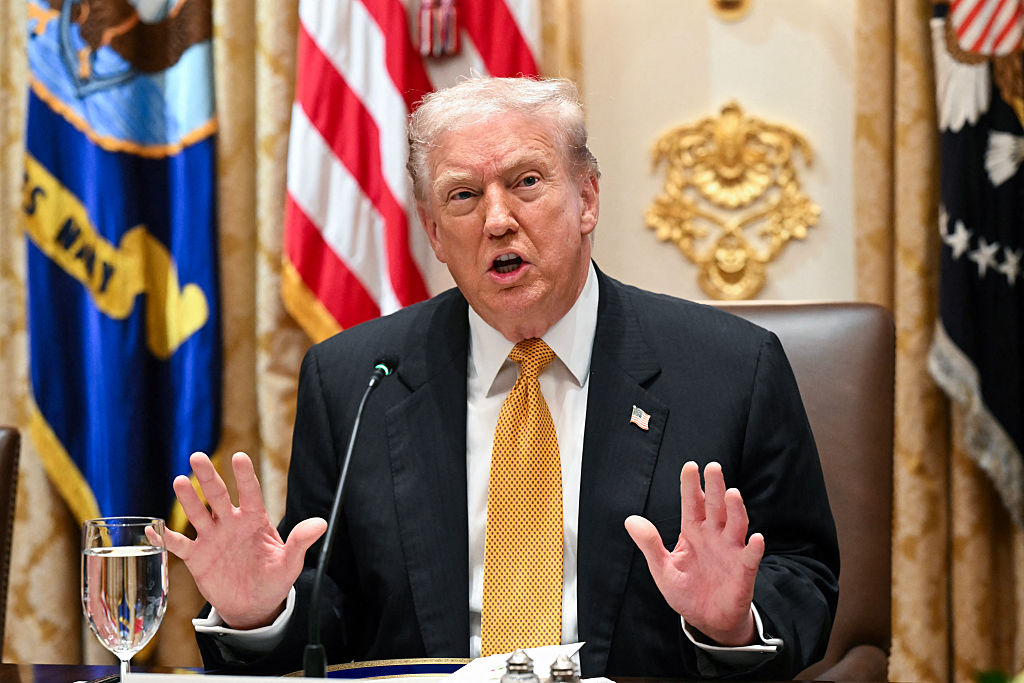The third presidential impeachment in US history has now reached the Senate. Like the first two, this one is almost certainly going to lead to presidential acquittal. An old saying given definitive expression by Ralph Waldo Emerson (and recently adapted by The Wire) warns that you should ‘never strike a king unless you are sure that you shall kill him’. Congress may not be risking royal reprisal here, but it is teaching all Americans — including all future presidents — a fateful lesson in institutional impotence. After this, who is ever again going to take the threat of impeachment seriously?
Congress has called its own bluff. Even something as simple as transmitting the articles of impeachment from the House to the Senate became a protracted and politicized farce, in the midst of which truly serious questions of war and peace — and constitutional war powers — arose. But faced with Democrats’ outrage over the killing of Iran’s Gen. Soleimani, President Trump must have asked himself, ‘what are they going to do? Impeach me?’
The outrage was hypocritical: drone strikes aerosolize wedding parties full of innocent people on a semi-regular basis, but the minute one takes out a general who had masterminded insurgency operations against US troops in a war zone, Congress suddenly has an attack of conscience. Like impeachment, this reveals more about the real character of the institution than a wise legislator would want known. Killing Soleimani, a man who deserved to die, was more controversial than ‘collateral damage’ in the form of civilian lives lost because Congress does not have the courage to question the underlying morality of the wars and prolonged occupations that are now a permanent feature of American foreign policy. What made Soleimani’s death so objectionable was that it was so unusual — so personal — when our political class likes to believe that war is now a science, to be conducted only as approved by the experts.
Congress has more blood on its hands than President Trump does. The wars that have still not ended under Trump were all started with congressional approval and have continued with ongoing congressional appropriations — just as Congress has also committed American taxpayers’ dollars to other countries’ wars in Yemen and Ukraine. That last item is, of course, at the heart of the impeachment saga: President Trump was not quick enough in turning over money to Kiev, and in return for doing so he seemingly wanted Ukraine’s government to launch a corruption investigation that might embarrass Joe Biden and his son. Why would a corruption investigation in Ukraine, of all places, embarrass a fine mid-Atlantic political clan like the Bidens? The answer categorically cannot be that there’s anything corrupt about a deadbeat Biden boy taking cash from foreign businesses with questionable connections to foreign governments while his father is vice president of the United States. Who could think you should investigate that?
Investigation — whether warranted or not — is of course one of Congress’s own prerogatives here in America, and a power that has been put to political use more than occasionally. Democrats themselves say so, pointing to such times as when a Republican-controlled House investigated the Benghazi debacle that occurred during Hillary Clinton’s tenure as secretary of state. Republicans in turn point to the plethora of investigations into Republican presidents by House committees under Democratic control. Congress’s subpoena power and authority to hold hearings on just about any subject is a mighty weapon. And while Congress has limited means to enforce a subpoena against executive branch officials, an administration that did not cooperate could risk angering the legislature to the point of triggering impeachment.
Now that threat looks emptier than ever. Two presidential impeachments failed when the House and Senate both were in the hands of the party in opposition to the man in the White House. Now a Democratic House has, for the first time, sent an impeachment to a Senate controlled by the president’s own party. That can hardly seem to anyone like a gamble with a better chance of success. Nancy Pelosi has only made abundantly clear what history had already begun to show — that impeachment need hold no terror for the executive, and so its threat need no longer restrain him. Imagine what Nixon might have done with that knowledge, had he known in advance the lessons of 1998 and 2020. In 1974, it still seemed like a big deal, something to take seriously and fear. Now? It’s a toothless implement in the hands of an institution whose approval ratings are typically less than half those of the president. In terms of popular support, legal power, now even psychological intimidation, Congress is unarmed before the executive. President Trump is not the type to take systematic advantage of that discovery. But future presidents will be. When you strike a king and fail to kill him, you have only committed suicide.


























